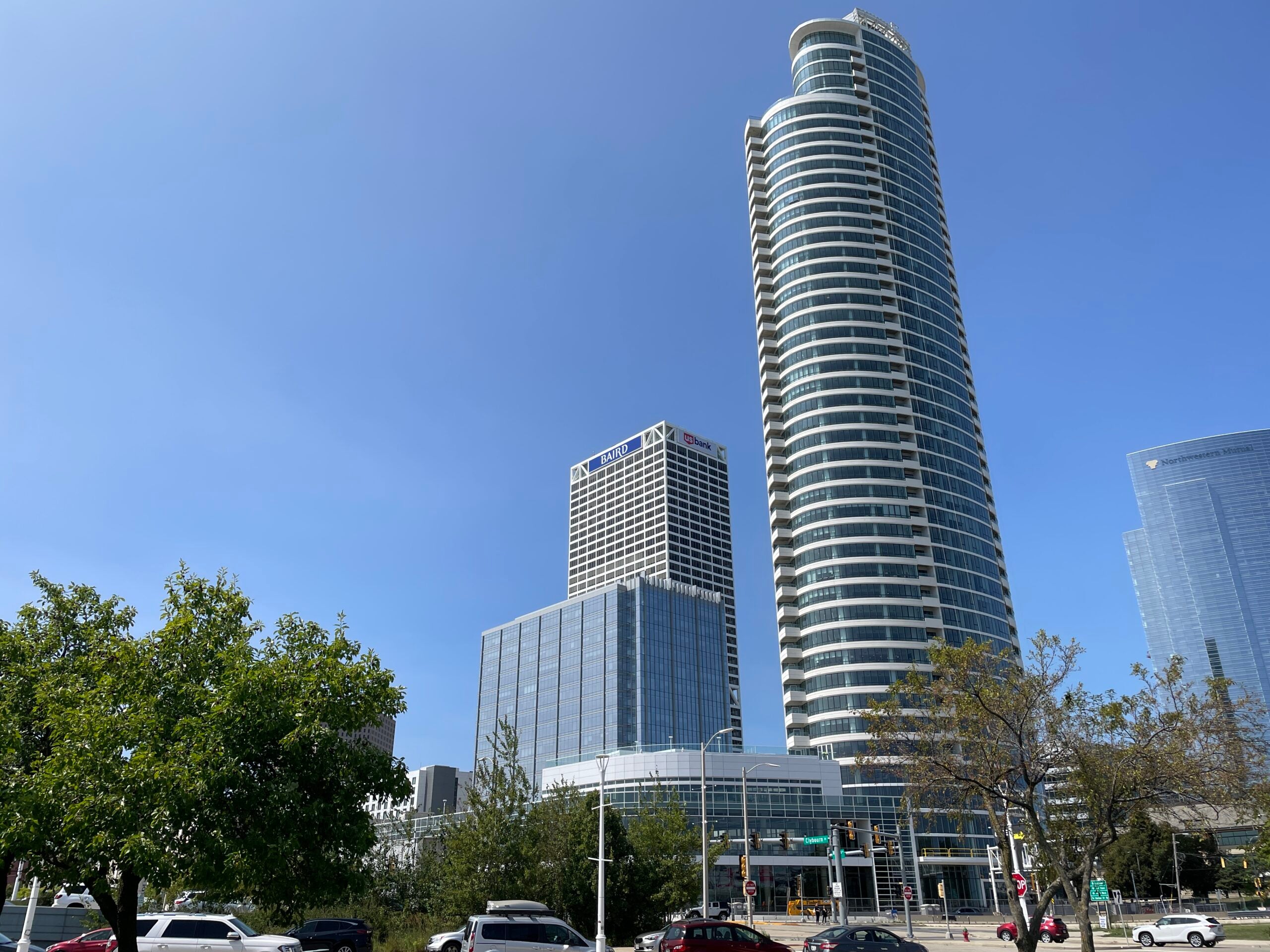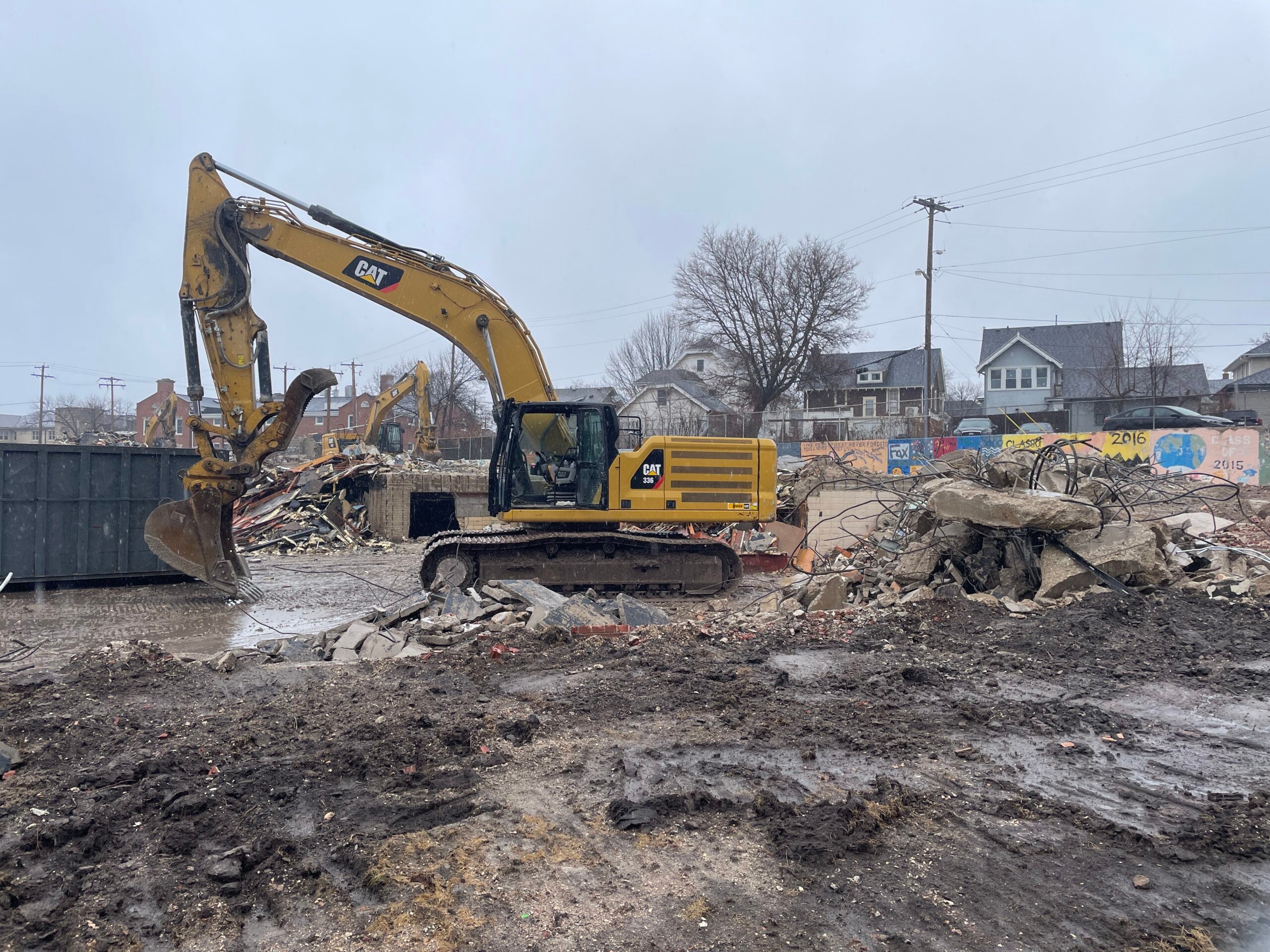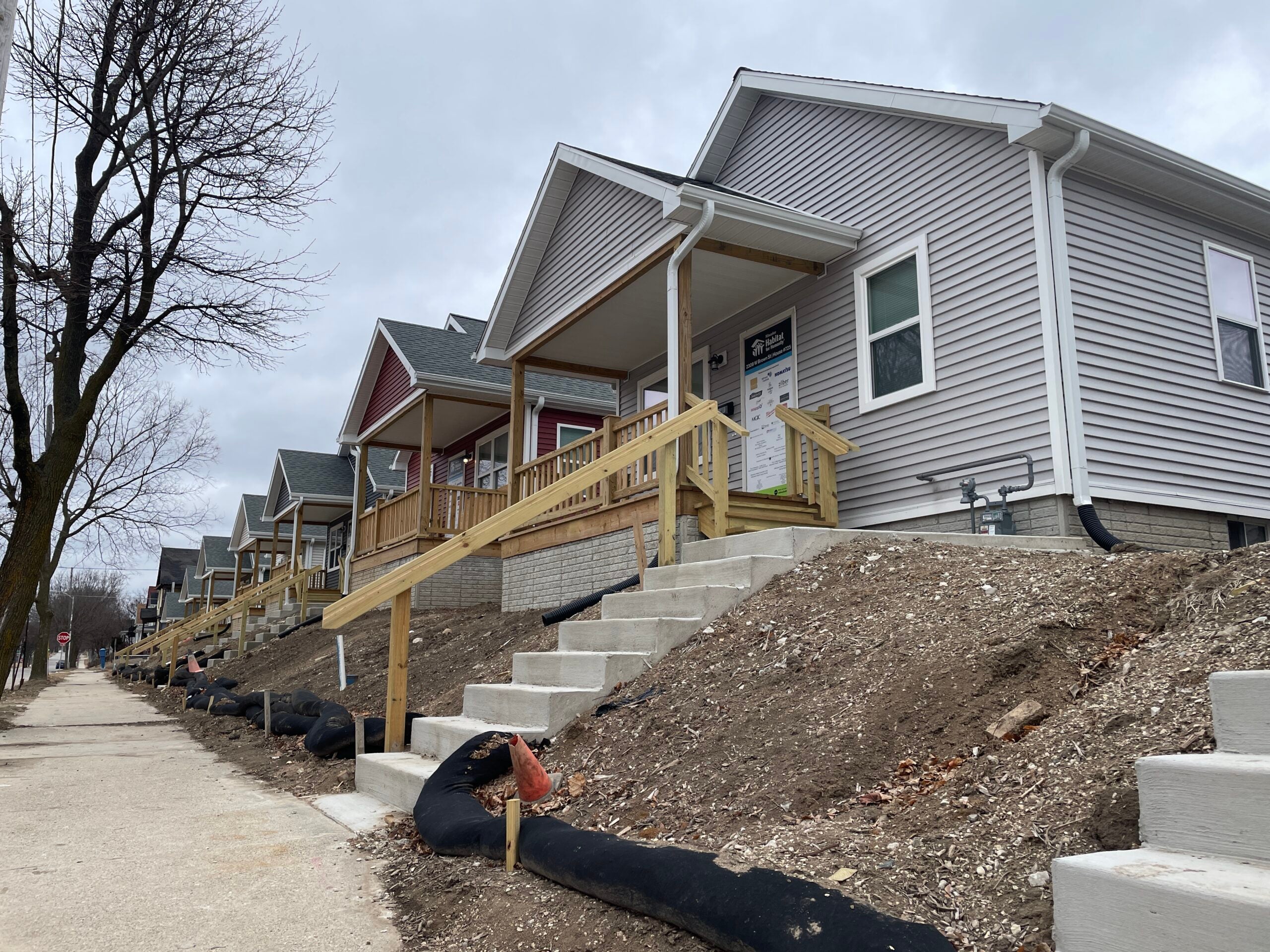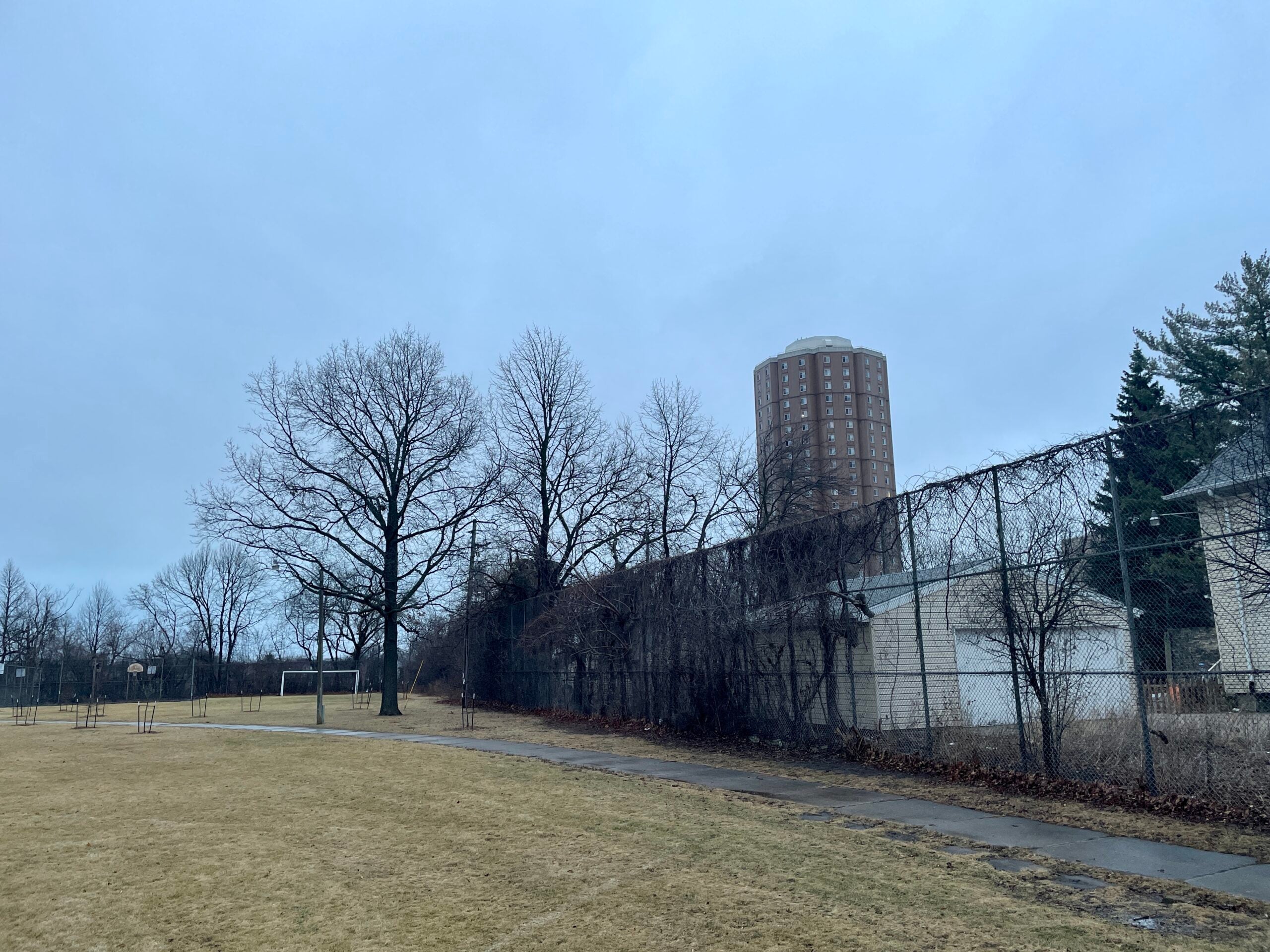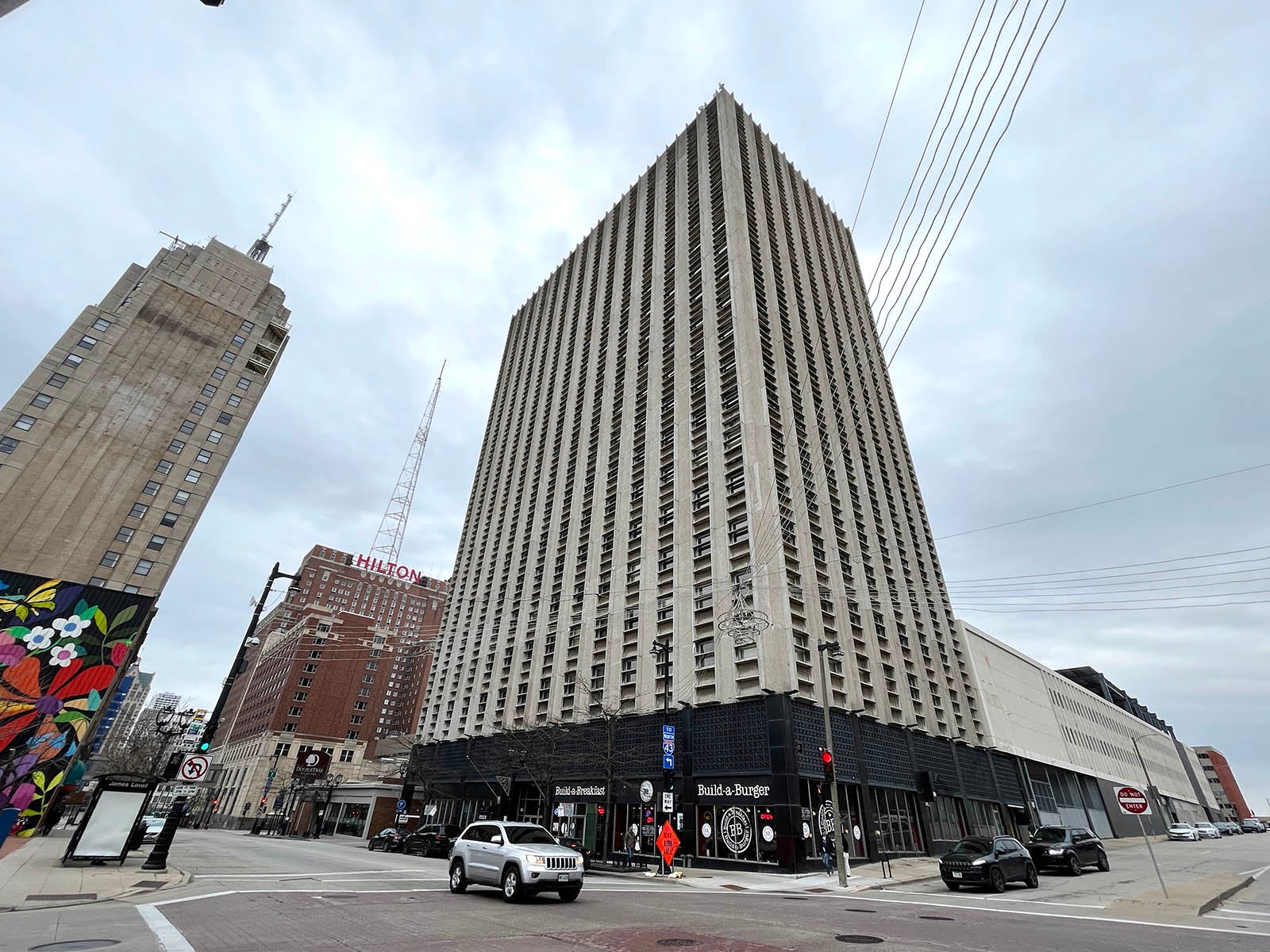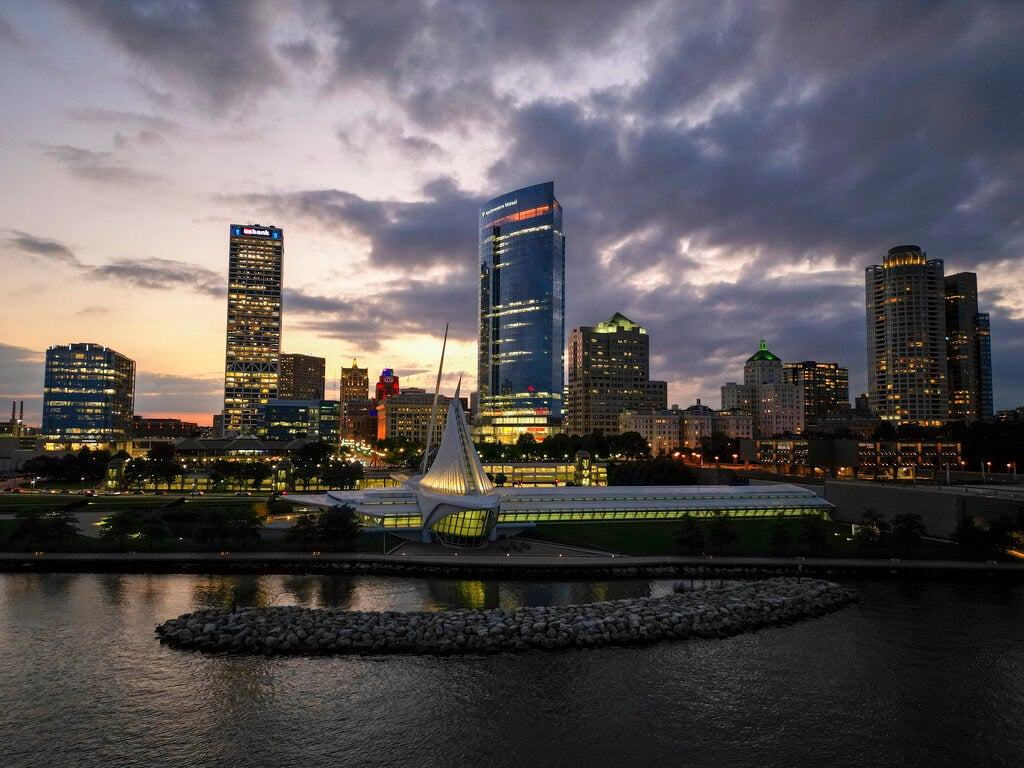At the 2021 groundbreaking for the 44-story Couture on Milwaukee’s lakefront, city leaders celebrated the development as a sign the downtown was on an upswing.
The Couture, the tallest residential building in Wisconsin, opened its doors this year, along with a second apartment tower, 333 Water, in the city’s Historic Third Ward.
But the luxury high-rises are filling up with renters more slowly than previous high-end towers did.
Stay informed on the latest news
Sign up for WPR’s email newsletter.
The Couture began leasing in May. As of mid-August, 30 percent of the building’s units have been leased, said Rick Barrett, CEO of BarrettLo, the real estate developer behind the Couture.
333 Water opened its doors in March. By mid-August, 15 percent of its units leased, according to Rikki Miner, 333 Water’s project manager for national development firm Hines.
As is typical in multifamily real estate, occupancy rates lag behind leasing rates while new residents move in. As of mid-August, the Couture was almost 20 percent occupied, and 333 Water was 7 percent occupied.
Rents at the Couture range from $1,795 to over $8,000. Units at 333 Water begin at $1,945 and climb to $6,205.
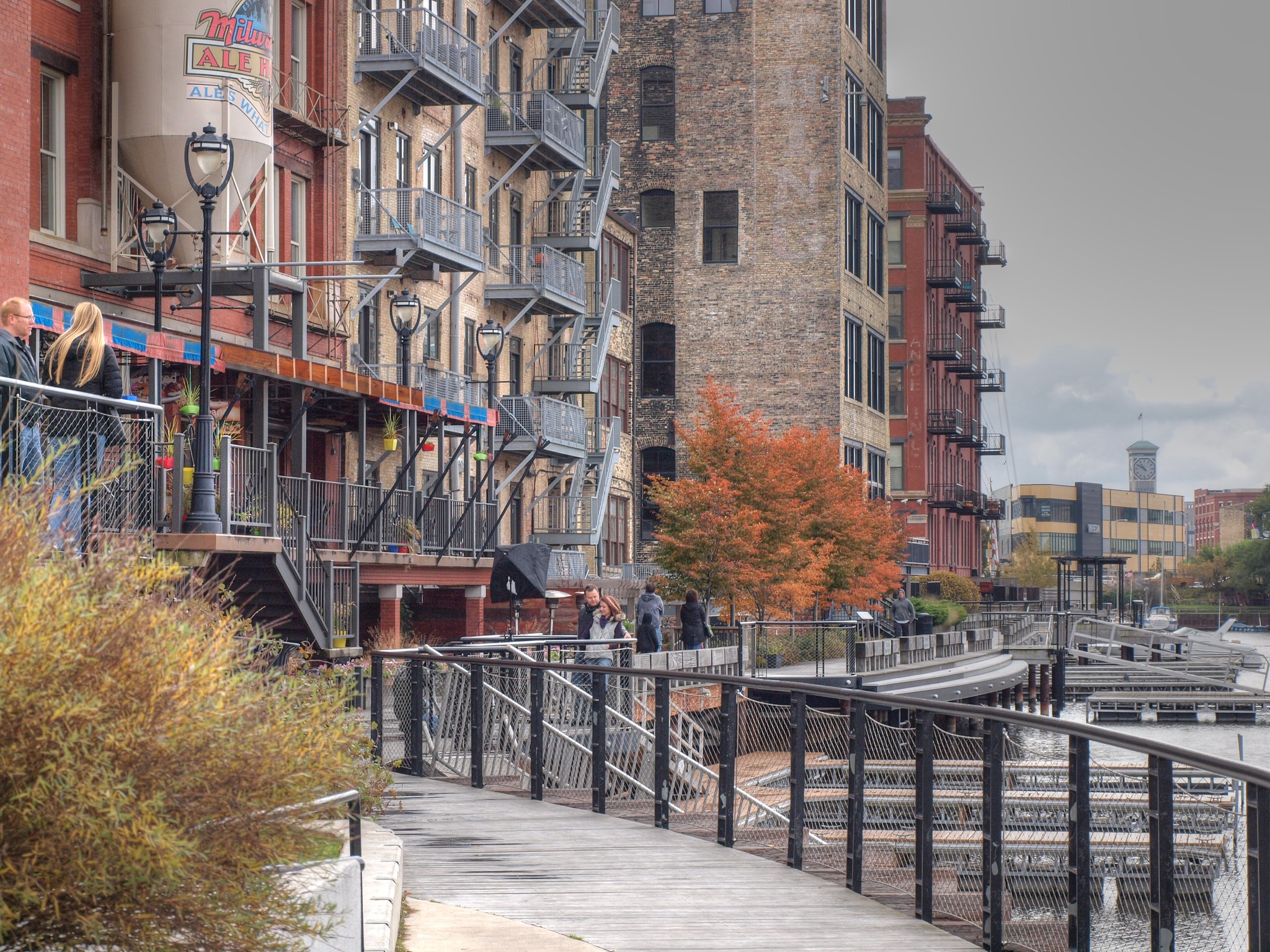
Previous high-rises saw quicker demand
The two residential towers are Milwaukee’s third and fourth with full amenities, like pools, retail space and fitness centers.
They were preceded by the lakefront 7SEVENTY7, commissioned by Northwestern Mutual in 2018, and Ascent MKE, the 2022 building that made headlines as the tallest mass timber construction in the world.
According to its developer, Ascent MKE was already 45 percent leased when it opened. OnMilwaukee reported that 7SEVENTY7 was 30 percent leased only two weeks after opening.
Dan Palec, director of research for Milwaukee real estate broker Boerke, said multifamily developments typically aim to have 30-50 percent of their apartments already pre-leased when construction wraps up. He believes the two previous towers had better conditions for hitting that target.
“Both are about 10 percent cheaper than Couture and 333 Water. So I think when the Ascent was delivered, it was more at the price point that the market was used to. And now with all the inflationary pressures and land costs getting higher, developers of Couture and 333 had to increase their rents,” Palec said.
Post-pandemic increases in construction costs have also made it difficult for developers to charge less than luxury prices for new apartments.
Finally, unlike low-rise buildings with similar amenities, these high-rises opened their apartments in phases, slowing down early leasing. Ground-floor retail space is still under construction in both buildings.
“The average consumer is looking at all these options and really going for the mid-rise apartments or the towers that have already delivered,” Palec said.
Rick Barrett, the Couture’s developer, said he feels “excited” about the pace his building is signing leases, especially for the most expensive units at the top of the building. He also said the ground-floor retail space will likely feature a steakhouse.
Rikki Miner, 333 Water’s project manager, said she is “pleased with the rents the community is generating,” and that she expects a “large amount of leasing activity” once the building is fully complete this fall.
Possible sign of saturated market
Tim Gokhman is the developer behind Ascent MKE, the mass timber tower of 2022.
He believes slow leasing signals a larger trend: After playing catch-up with other similar medium-sized cities in terms of high-rise construction, Milwaukee’s market has reached a saturation point.
“Clearly, the market is telling us that it’s slowing down in terms of how much it can absorb,” Gokhman said.
Mark Eppli, the director of University of Wisconsin-Madison’s Graaskamp Center for Real Estate, agreed.
“I think we’re saturated for the next couple years. It’d be hard to add new to this marketplace,” Eppli said.
But Eppli pointed out that Milwaukee has very few luxury developments in the works for the next two years.
“The likelihood that some of this could get leased up more robustly? Yeah, seems reasonable. So, yes, no question we’re overbuilt. But there’s every reason to believe that some of this is likely to dissipate,” he said.
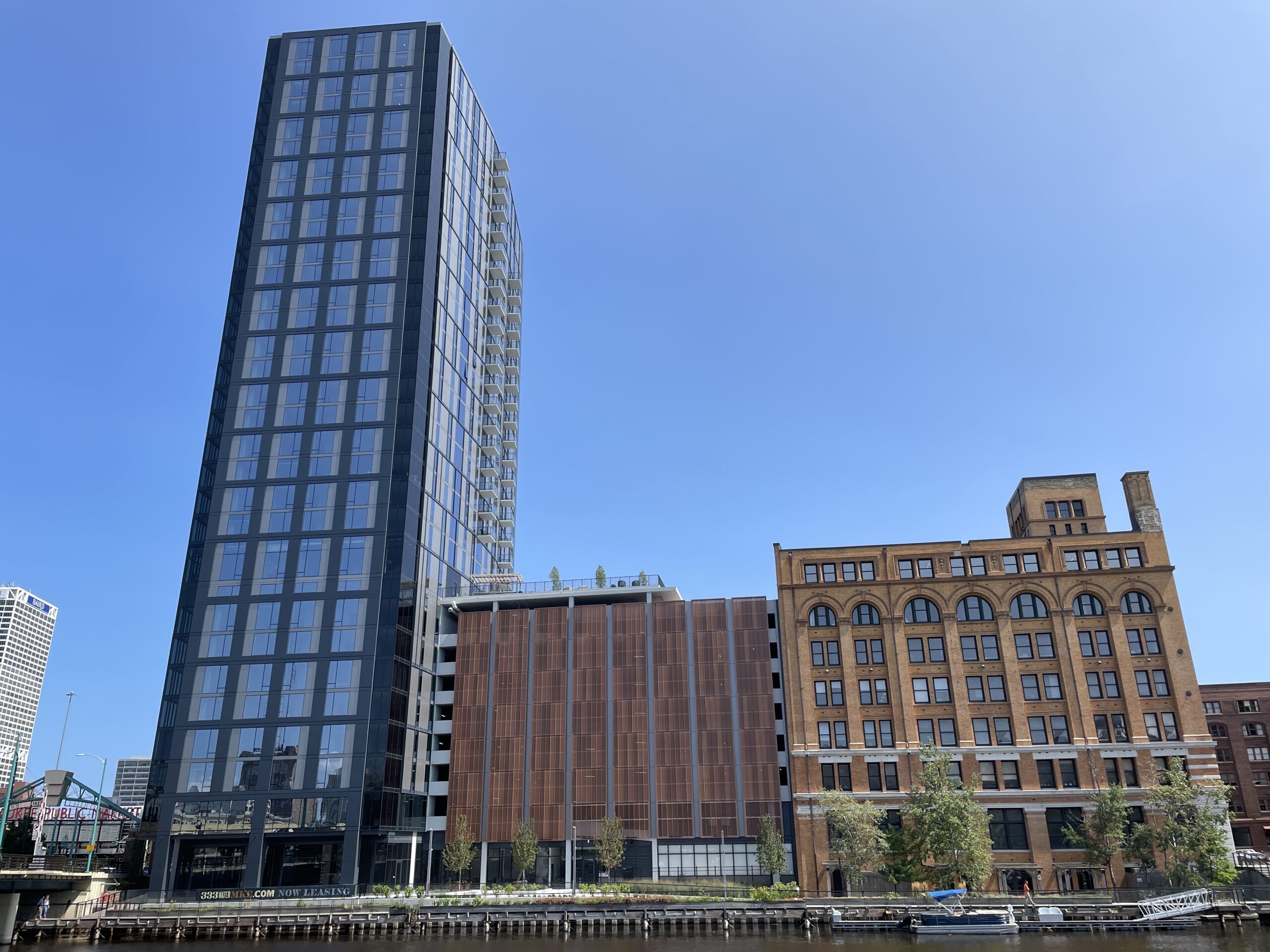
Competing visions for future high-rises
Neutral, a sustainability-focused development firm from Madison, is planning two more high-rises next to each other, at 1005 N Edison St. and 1001 N Water St. Combined, the two buildings promise to deliver over 1,000 pricey apartments to the western edge of downtown Milwaukee.
“For the years 2028 onward, we do see an opportunity to absorb several hundred units at downtown, otherwise we wouldn’t have submitted that level of density,” said Daniel Glaessl, chief product officer at Neutral.
He said the first of the two buildings would open in early 2027 at the earliest.
Gokhman’s firm had also proposed a development for the North Water Street site, but withdrew it hours before the city publicly selected Neutral’s plan.
“They were very, very different in their nature,” said Gokhman of the rival proposals.
“Looking at market trends, we saw two things happening: No. 1, we saw that luxury high-rises — we don’t think are needed anymore by the market. And there’s clearly a dire need for workforce housing,” he said.
Gokhman said all 192 rental units of his proposal met the cutoff for workforce housing. For people earning 100 percent of the area median income, workforce housing is meant to take up less than 30 percent of their paycheck. In the Milwaukee metro area, that amounts to about $1,790 a month for an individual living in a one-bedroom apartment.
Gokhman’s proposal also requested a boost from city coffers, through a tax-increment financing district, or TIF. It would have directed new proceeds from property tax growth around the building site towards covering certain construction costs.
Alder hopes for independent study
Alder Robert Bauman represents the proposed development area in Milwaukee’s Common Council. He has introduced a motion to the Council’s Zoning, Neighborhoods & Development Committee, calling for an independent study of both proposals.
“The general sentiment I hear from other developers is that a residential tower of that scale would push the boundaries of feasibility in the Milwaukee market,” Bauman said, adding that phased developments have “burned” Milwaukee in the past.
“Once they get their foot in the door by gaining control of the property and actually having something built on it, they’ve pretty much got us. And if Phase Three doesn’t materialize? Whoops, sorry, change of circumstances, interest rates, recession, what have you,” Bauman said.
Neutral’s Glaessl said the current proposal is “nowhere near a final design,” adding that his company will use the next year to “refine” their design and “ensure that whatever we are building is absorbable by the market.”
Editor’s note: this story has been updated. The Couture began leasing in May.
Wisconsin Public Radio, © Copyright 2025, Board of Regents of the University of Wisconsin System and Wisconsin Educational Communications Board.
